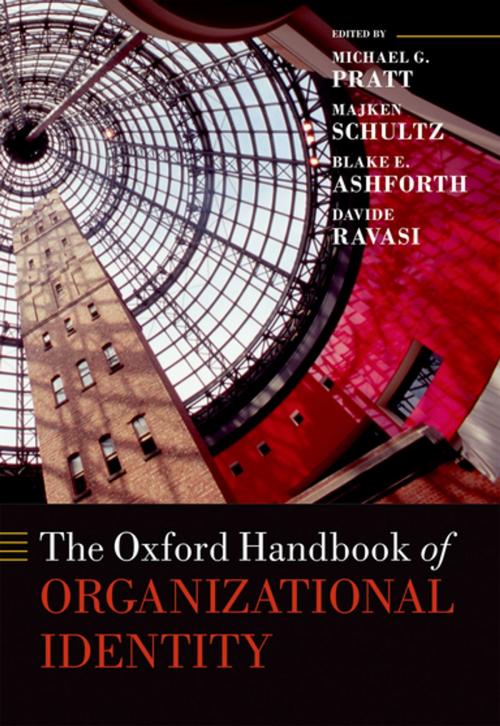The Oxford Handbook of Organizational Identity
Business & Finance, Human Resources & Personnel Management, Organizational Behavior, Nonfiction, Health & Well Being, Psychology| Author: | ISBN: | 9780191003714 | |
| Publisher: | OUP Oxford | Publication: | September 29, 2016 |
| Imprint: | OUP Oxford | Language: | English |
| Author: | |
| ISBN: | 9780191003714 |
| Publisher: | OUP Oxford |
| Publication: | September 29, 2016 |
| Imprint: | OUP Oxford |
| Language: | English |
The topic of organizational identity has been fast growing in management and organization studies in the last 20 years. Identity studies focus on how organizations define themselves and what they stand for in relation to both internal and external stakeholders. Organizational identity (OI) scholars study both how such self-definitions emerge and develop, as well as their implications for OI, leadership and change, among others. We believe there are at least four inter-related reasons for the growing importance of OI. OI addresses essential questions of social existence by asking: Who are we and who are we becoming as a collective? It is a relational construct connecting concepts and ideas that are often viewed as oppositional, such as "us" and "them" or "similar" and "differen". OI is also nexus concept serving to gather multiple central constructs, also represented in this Handbook. Finally, OI is inherently useful, as knowing who you are is the foundation for being able to state what you stand for and what you are promising to others, no matter their relation with the organization. The Handbook provides a road-map to the OI field organized in over 25 chapters across seven sections. Each chapter not only offers a broad overview of its particular topic, each also advances new knowledge and discusses the future of research in its area of focus.
The topic of organizational identity has been fast growing in management and organization studies in the last 20 years. Identity studies focus on how organizations define themselves and what they stand for in relation to both internal and external stakeholders. Organizational identity (OI) scholars study both how such self-definitions emerge and develop, as well as their implications for OI, leadership and change, among others. We believe there are at least four inter-related reasons for the growing importance of OI. OI addresses essential questions of social existence by asking: Who are we and who are we becoming as a collective? It is a relational construct connecting concepts and ideas that are often viewed as oppositional, such as "us" and "them" or "similar" and "differen". OI is also nexus concept serving to gather multiple central constructs, also represented in this Handbook. Finally, OI is inherently useful, as knowing who you are is the foundation for being able to state what you stand for and what you are promising to others, no matter their relation with the organization. The Handbook provides a road-map to the OI field organized in over 25 chapters across seven sections. Each chapter not only offers a broad overview of its particular topic, each also advances new knowledge and discusses the future of research in its area of focus.















